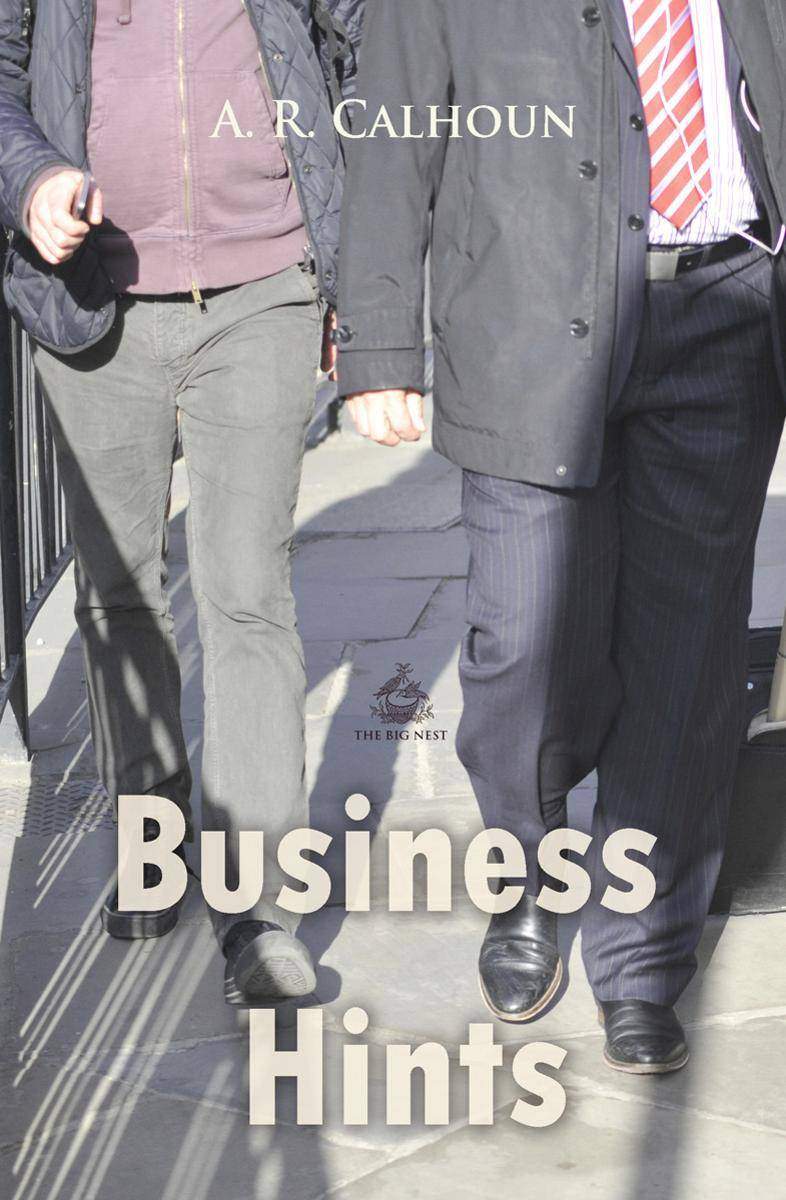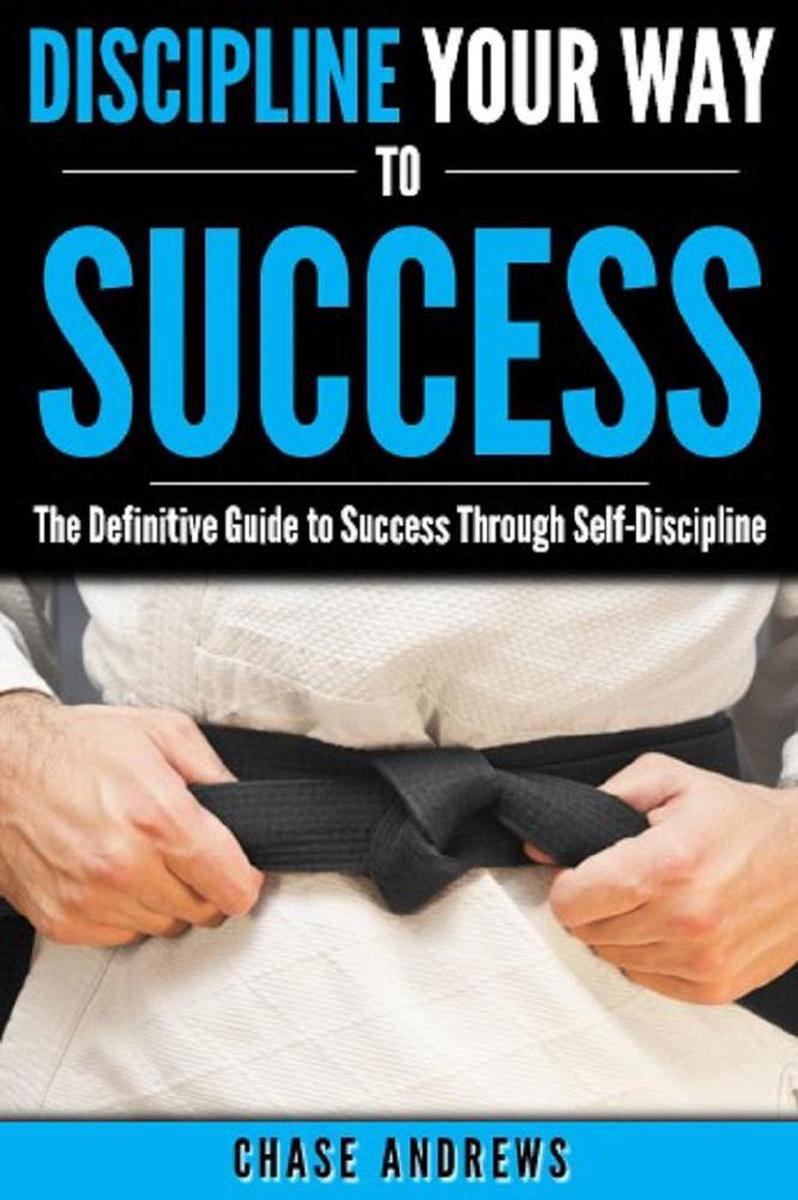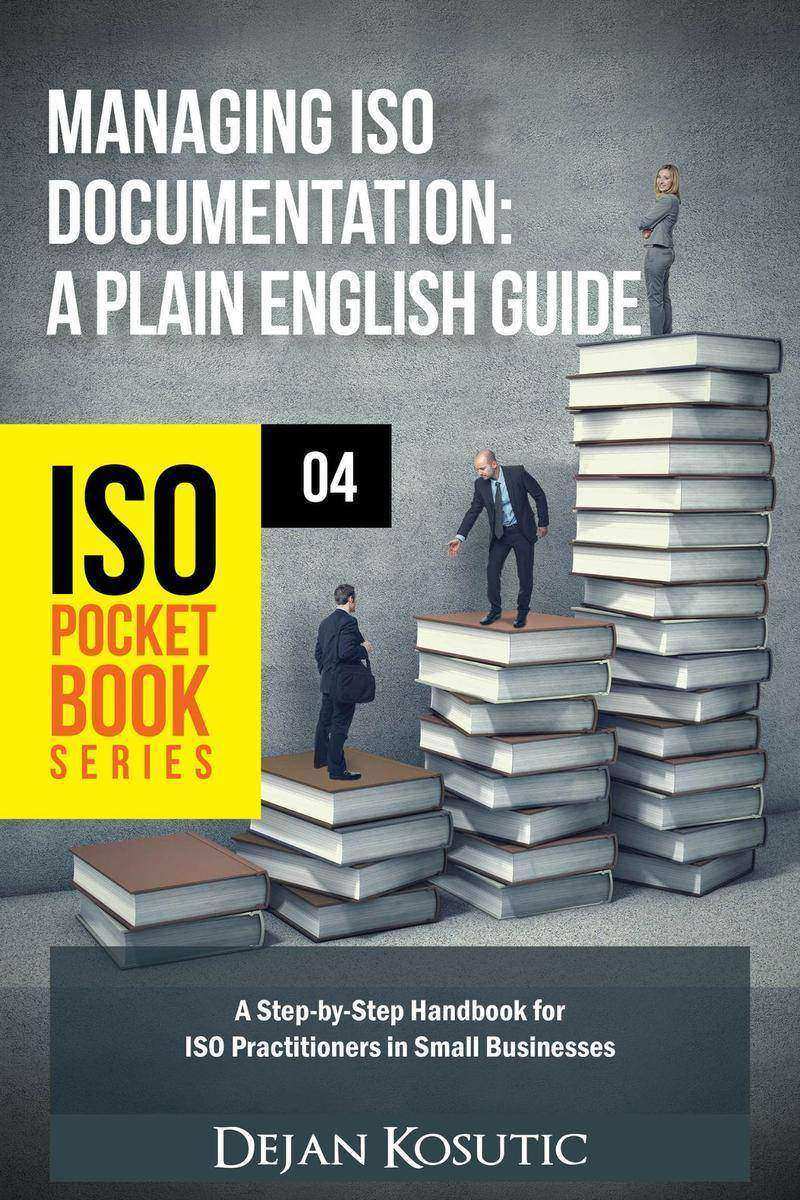
From Voices to Results - Voice of Customer Questions, Tools and Analysis
¥69.75
Make the right decisions about your products and services by listening effectively to the people that matter – your customers About This Book ? Understand the core components, processes and technologies available for a VOC initiative ? Structure effective VOC programs and turn VOC into actionable product success ? A handy guide to help you identify the hidden needs of your customers and strengthen your relationship with them Who This Book Is For The book is for anyone who needs to get to know their customer, how they feel and what they think about a certain subject. If you are a stakeholder in any project responsible for customer relationships, this book will help you immensely. An awareness of VOC as a topic would be useful, although not essential. What You Will Learn ? Understand different unarticulated needs of your customers ? Deploy effective VOC in your organizations ? Identify and understand the different tools and processes to set up a successful VOC program ? Integrating your findings about your customers into successful products ? Effectively utilize VOC for a successful launch of your product In Detail This book is all about getting to know your customers – what they want and need, what they like and don’t like. Voice of the Customer is one of the most popular forms of market research combining both quantitative and qualitative methods. This book shows you how to engage with customers and understand their wants and needs, likes and dislikes – something which is becoming more in more important with the rise of an increasingly connected world. The book addresses the problem of understanding your customer and engaging with those customers. It also targets people who want to know how to do an effective VOC capture and analysis. As with any engagement/research based initiative, there is also a concern with the ROI. This book shows you how to overcome this problem as well. By the end of this book, you will have a thorough understanding of the relevant stages of a VOC project. It will show you how to devise an effective plan, direct the project to their objectives, and then show you how to collect the voice of the customer, with examples and templates for interviewing and surveying. Style and approach This book is a perfect blend of concepts and real-world use-cases which will help the businesses understand and therefore serve the customers better. Written in a very engaging manner, this book ensures you are able to grasp the theory and apply it in your business seamlessly.

The Marriage Contract by Honoré de Balzac - Delphi Classics (Illustrated)
¥8.09
This eBook features the unabridged text of ‘The Marriage Contract by Honoré de Balzac - Delphi Classics (Illustrated)’ from the bestselling edition of ‘The Collected Works of Honoré de Balzac’. Having established their name as the leading publisher of classic literature and art, Delphi Classics produce publications that are individually crafted with superior formatting, while introducing many rare texts for the first time in digital print. The Delphi Classics edition of Balzac includes original annotations and illustrations relating to the life and works of the author, as well as individual tables of contents, allowing you to navigate eBooks quickly and easily. eBook features: * The complete unabridged text of ‘The Marriage Contract by Honoré de Balzac - Delphi Classics (Illustrated)’ * Beautifully illustrated with images related to Balzac’s works * Individual contents table, allowing easy navigation around the eBook * Excellent formatting of the text Please visit www.delphiclassics.com to learn more about our wide range of titles

Maps of the Soul
¥90.84
Othman al-Sheikh is running away from the shadows of his past life in a small dusty village in the Libyan Desert. Tripoli, meanwhile, is a city in the process of transformation, moulded to the will of its Italian colonisers. Its decadent entertainments and extravagant riches conceal an underbelly of abject poverty and ruthless plotting. Othman falls for the city and its temptations. With a natural instinct for survival, he tries his luck in the capital, swept along by chance and opportunity.

The Confines of the Shadow: The Colonial Conquest
¥81.67
The Confines of the Shadow is a sequence of novels and short stories that map the transformation of the Libyan city of Benghazi from a sleepy Ottoman backwater in the 1910s to the second capital of an oil-rich kingdom in the 1960s. Alessandro Spina's saga begins in November 1912 with The Young Maronite, which sees Italian soldiers solidifying their control over Libya's coasts, leaving the Libyan rebels to withdraw to the desert and prepare for a war that would last until 1931, when by dint of sheer brutality, including the internment of tens of thousands of civilians into concentration camps, the Italians crushed the rebellion and murdered its widely respected leader, Omar al-Mukhtar. Employing a cosmopolitan array of characters, ranging from Ottoman functionaries, to Sanussi aristocrats and Italian officers, Spina chronicles Italy's colonial experience from the euphoria of conquest - giving us a front row seat to the rise and subsequent fall of Fascism in the aftermath of World War II - to the country's independence in the 1950s. Spina finally concludes his narrative with the discovery of Libya's vast oil and gas reserves, which triggered the tumultuous changes that led to Muammar Gaddafi's forty-two-year dictatorship. Distinguishing themselves by their intimate understanding of East and West, the novels that comprise The Confines of the Shadow are among the most significant achievements of 20th-century fiction and stand unchallenged as the only multi-generational epic about the European experience in North Africa. This is the first instalment of a three-volume translation, and it includes The Young Maronite, The Marriage of Omar and The Nocturnal Visitor, which are set between 1912 and 1927.

How to Get on in the World: A Ladder to Practical Success
¥40.79
The artist's idea of success is very different from that of the business man, and the scientist differs from both, as does the statesman from all three. We read of successful gamblers, burglars or freebooters, but no true success was ever won or ever can be won that sets at defiance the laws of God and man. To win, so that we ourselves and the world shall be the better for our having lived, we must begin the struggle, with a high purpose, keeping ever before our minds the characters and methods of the noble men who have succeeded along the same lines.

Business Hints
¥40.79
Well, what do you know of business laws and rules, outside your present circle of routine work? Now, this handy little volume is a condensation of the rules and the laws which every man, from the day laborer to the banker, should be familiar with. We have not put in everything about business, for that would require a library, instead of a book that can be read in a short day, and be consulted for its special information at any time.

Erelem: eszetlen szerelem
¥48.97
Vannak ügyfelei??Vev?i??Vásárlói??Akkor erre a k?nyvre szüksége van!?A Királyok vagy zsarnokok? ?gyfélpanasz 2.0 cím? k?nyv??sszefoglalja az ügyfélpanaszok kezelésének jó gyakorlatát. Jellegzetes esetpéldákon keresztül dolgozza fel az ügyfélpanasz kezelés buktatóit, bemutatja a legfontosabb kutatásokat is.? Egy k?nyv a vev?visszajelzések fontosságáról és a panaszkezelésr?l.?Amit megtudhat a Királyok vagy zsarnokok? ?cím? k?nyvb?l: Miért olyan fontosak a vásárlók d?ntéseiben a korábbi vásárlók visszajelzései? Tényleg mindig a vev?nek van igaza? Hogyan lesz kommunikációs krízishelyzet egyetlen ügyfélpanaszból? Mit tanulhatsz meg mások hibáiból, nevezetes ügyfélpanaszokból? Hogyan használható a szájreklám és a social listening a panaszkezelésben? Mire jók az ügyfélszolgálati chatbotok? Hogyan segít a mesterséges intelligencia a panaszkezelésben? Mi a social media ügyfélszolgálat? A k?nyv szerz?je Vas Dóra, kríziskommunikációs szaktanácsadó, online kommunikációs szakember.

Cum s? sl?be?ti peste noapte
¥73.49
Autoarea c?r?ii propune o documentat? trecere ?n revist? a celor mai importante teorii ale marketingului politic ?i o descriere aprofundat? a etapelor pe care le presupun conceperea ?i plasarea unui produs din acest domeniu. De asemenea, volumul cuprinde un studiu comparativ al abord?rilor privind marketingul politic ?i o clarificare a sectorului publicistic privind domeniul marketingului politic.

Discipline Your Way to Success: The Definitive Guide to Success Through Self-Dis
¥24.44
Many inspired people miss the opportunities of being gifted the way they are because they don't have the will or the discipline to move the inspiration from their soul to their hands. If you are the kind of person that is full of inspiration, loads of ideas, and have plenty knocking around in your head, but none of that has materialized, then there is a good chance what you need is more discipline.?In most circles among adults, suggesting discipline is problematic because it feels like that word is reserved for kids. Yes, there is one kind of discipline that is reserved for kids. But the kind of discipline that you need to attain the kind of success you are thinking of is very different than the picture that emerges at the invocation of the word. The discipline you need is the kind that will allow you to take control over your thoughts and actions.?We may have all the other attributes that are required to be successful, but if we lack the discipline then all bets are off. That's usually where the problem is when you've gone through tons of books, tons of seminars, and you still can't translate inspiration into action.?This book will show you the reason discipline is elusive to many people and why the lack of success becomes the norm. You can't just turn on discipline in many cases, you need to understand yourself and understand the reason your greatness is stuck within you struggling to come out.?? Don't wait any longer! Scroll up and click the 'Buy Now' button and start instilling more discipline in your life to help achieve your dreams!

Doctorul memoriei - tehnici simple ?i amuzante pentru ?mbun?t??irea memoriei
¥40.79
Prima carte din Rom?nia despre p?strarea clien?ilor Aceasta nu este o biblie ?n domeniu, dar este un must read pentru oricine vrea s? p?streze un client. ?Cred ?n Customer Retention. Cred ?n Lovemarks. Cred ?n Customer Experience ca form? evoluat? a loialit??ii. Cred ?n cei mai buni. Cred ?n exper?i, ?n cei care nu se vor mul?umi cu a fi exper?i din titulatur?, ci din convingeri ?i idei proprii.” Acesta este manifestul cu care ??i ?ncepe Mihai Dragnea pledoaria pentru autenticitate, responsabilitate ?i creativitate ?n rela?ia cu clien?ii. ?n goana dup? market share ?i profit se investesc foarte multe resurse ?n atragerea clien?ilor noi, iar rela?ia cu clien?ii existen?i este adeseori neglijat?. Foarte important: Customer Retention nu se refer? la loializarea clien?ilor, ci la p?strarea celor care inten?ioneaz? s? renun?e. Customer Loyalty este pentru cei pe care vrei s? ?i r?spl?te?ti c? ??i sunt clien?i. Este vorba despre dou? segmente diferite c?rora trebuie s? le corespund? abord?ri de business distincte. Clien?ii ??i exprim? opiniile oriunde, online mai ales, ?i au o mare putere de decizie, inclusiv pe aceea de a schimba valorile ?i credin?ele unei companii. A-i trata nediferen?iat pe cei care vor s? renun?e la produsele ?i serviciile tale ?i pe cei care ??i sunt fideli este ca ?i cum ai trage cu tunul la un concurs de tir cu arcul. ?A? recomanda aceast? carte ca lectur? obligatorie pentru toate persoanele dintr-o companie, de la front office p?n? la management. ?n orice moment ?i la orice palier ierarhic, pot fi luate decizii care s? ajute compania s? ??i p?streze clien?ii mul?umi?i ?i aceast? mul?umire s? fie tradus? ?n fidelitate. Mihai ne arat? exact cum trebuie tratat? problema reten?iei ?i reu?e?te s? explice importan?a unor decizii potrivite luate ?n deplin? cuno?tin?? de cauz?, at?t business, c?t ?i customer oriented.” - Andrei Cismaru, Social Media Manager at Bitdefender ?Mihai este un artist des?v?r?it. Iar arta sa st? ?n m?iestria cu care reu?e?te s? pun? ?n practic? una dintre cele mai frumoase discipline de business, rela?ia cu clien?ii.” - M?d?lina Vil?u, Managing Director, Marketing Insiders Group ?This is retention vine cu informa?ii foarte bine documentate despre loializare ?i reten?ie, dou? instrumente de marketing despre care nu mul?i ?tiu c? sunt diferite. Cu un stil diplomatic ?i pe alocuri umoristic, Mihai ne vorbe?te despre provenien?a acestor instrumente ?i ne ajut? s? le diferen?iem prin simpla aprofundare a istoriei lor. Speciali?tii ?n marketing vor ?n?elege, dup? citirea acestei c?r?i, c? uneori ?i-au targetat gre?it clien?ii, dar vor ?ti ce ?i cum s? ?mbun?t??easc? pe viitor.”- Gabriela Udeanu, Founder, Buzzle.ro

Сооружаем уютную беседку, веранду, террасу
¥8.83
Б?знес-гуру, ?нвестор Кремн??во? долини, американський п?дпри?мець Бен Горов?ц написав в?дверту книгу про б?знес, не под?бну до сотн? видань штибу ?Як створити власну справу ? досягнути усп?ху?. ??Автор не пропону? готових рецепт?в усп?ху й аргументовано поясню?, чому таких рецепт?в не ?сну?. Горов?ц розпов?да?, що в б?знес?, як ? в житт?, передус?м потр?бно розмежовувати сво? сприйняття ? факти, особисте та профес?йне, ? тод? нав?ть р?шення зв?льнити кращого товариша н? для кого не стане катастрофою. Нав?ть якщо п?д вашим кер?вництвом працю? найталановит?ший прац?вник, який здобув визнання у профес?йних колах, саме ви вир?шу?те, чи потр?бен його нестерпний характер ? великий талант ваш?й компан??.??Увесь св?й досв?д керування людьми, боротьбу з ?хн?ми ?нтригами, пошуки найкращих фах?вц?в Бен Горов?ц пода? як ?нструкц?ю до д??, зрозум?лу кожному. Б?знес-д?йсн?сть — нещадна, наче життя у гетто, про яке сп?вають часто цитован? автором репери. А ваш? шанси виграти дор?внюють шансам програти. Тому ця книга не для тих, хто шука? легких в?дпов?дей, а для тих, хто зна?: запитань завжди б?льше, н?ж в?дпов?дей, а перемагають у б?знес? т?льки найв?дважн?ш?.??

Тайна имения Велл (Tajna imenija Vell)
¥18.07
У чому причина стр?мкого економ?чного злету Китаю? Чому не можна беззастережно дов?ряти думц? нео?нституц?онал?ст?в? Де ?золота середина? в керуванн? економ?кою держави? На ц? та ?нш? питання шука? в?дпов?дь репортер Financial Times Джо Стадвелл. В?н анал?зу? три головн? складники усп?шно? економ?ки: с?льськогосподарську пол?тику, промислове виробництво ? розпод?л ф?нансування. У приц?л? авторсько? уваги Япон?я, П?вденна Корея, Тайвань, ?ндонез?я, Малайз?я, Та?ланд, Ф?л?пп?ни, В’?тнам ? Китай. Анал?зуючи б?знес цих кра?н, автор показу?, що спрацювало в Аз??, а що н?

Cómo ganar $ 100,000 por a?o en ingresos pasivos y viajar por el mundo
¥32.62
"Chase Andrews proporciona la hoja de ruta exacta que puede seguir para obtener $100,000 por a?o en ingresos pasivos." ?Muy valioso y altamente recomendado para aquellos que quieren comenzar a ganar dinero mientras duermen!"“Mark Anastasi, autor del best-seller del New York Times "The Laptop Millionaire”Si su objetivo es una isla remota o simplemente pasa más tiempo con su familia, este libro puede llevarlo allí. Descubra las 14 estrategias de ingresos pasivos que utilizan las personas comunes para recuperar el control de su tiempo y aprovechar al máximo sus vidas. Sí, ahora puede vivir el estilo de vida que siempre ha so?ado y disfrutar de múltiples flujos de ingresos.?Si está cansado de hacer a su jefe rico de trabajar de cheque a cheque, o simplemente quiere mejorar drásticamente su estilo de vida actual, este es el libro que puede cambiar todo.Siga los pasos que se detallan en este libro y tendrá todo esto más pronto de lo que creyó posible.?Millones de personas viven bajo sus propios términos, haciendo lo que aman, trabajando cuando eligen hacerlo, ganando el doble, el triple o más de lo que hicieron en sus trabajos "normales".??Está listo para unirse al movimiento? **Aquí hay una vista previa de lo que aprenderá**?Qué es el ingreso pasivo y por qué lo necesita más de lo que cree?Cómo hacer una fortuna vendiendo eBooks en Amazon Kindle?Cómo encontrar, analizar y vender productos físicos a través del programa FBA de Amazon?Cómo generar seis cifras por a?o en Bienes Raíces comprando solo dos propiedades por a?o?Cómo analizar el mercado de valores y hacer una matanza de opciones de compra y venta?Cómo hacer $ 100,000 por a?o gracias a eBooks?Cómo crear un sitio y monetizar con una guía paso a paso?Cómo crear un blog con una guía paso a paso?Cómo hacer dinero de los sitios de autoridad?Cómo encontrar y vender bienes raíces digitales (sitios web) para obtener enormes ganancias?Cómo convertir su oro y plata en activos que generan ingresos?Cómo crear una cartera de dividendos de seis cifras por a?o??Y mucho más!Obtenga su copia hoy y dé un paso más hacia la libertad financiera

Nicolae Breban - 70
¥57.14
Criza economic? a ultimilor ani ne-a f?cut mult mai precau?i c?nd vine vorba de bani. ?ns? ce te faci c?nd partenerul de via?? este ?m?n?-spart?“ sau vrea ?n continuare s? plece ?n vacan?e scumpe, cu pre?ul sacrific?rii pensiei private?Scris? de o echip? de economi?ti ?i psihologi cu experien?? ?n consilierea financiar? ?i de cuplu, cartea de fa?? v? ajut? s? ?n?elege?i ?n ce fel buna chivernisire a banilor familiei spore?te iubirea ?i ?ncrederea ?n cuplu. Autorii americani discut? aspectele psihologice ale negocierii ?i implic?rii afective ?n via?a de cuplu, corel?ndu-le cu ponturi financiare pentru controlul atent al cheltuielilor, pentru stabilirea unui buget realist ?i a unor rela?ii echitabile cu banca ?i, mai presus de toate, pentru o investi?ie de?teapt? ?n viitorul rela?iei ?i copiilor.
![Borsada Kuramlar ve Kurallar: [A??klamal? ve Diyagramlarla]](https://platform-permanent.ddimg.cn/pt-media-info-soa-resource/digital/product/53/5/1901165305_ii_cover.jpg?version=1d738c1a-1194-4a3b-8257-c4fb56da3fb6)
Borsada Kuramlar ve Kurallar: [A??klamal? ve Diyagramlarla]
¥36.95
Victor Niederhoffer ve Laurel Kenner'in Pratik Spekülasyon (Practical Speculation) adl? kitab?nda, bal??a ??kma zaman? konusunda ?aka ile kar???k baz? ger?ek?i de?erlendirmeler yap?lm??. Bunlar, yorumlar?mla a?a??da: a) Bal?klar?n yemlenmesi s?ras?nda mutlaka g?lde olun. ?rne?in, para arz? bir nedenle art?yorsa, bundan do?rudan etkilenecek hisse senedi gibi enstrümanlara yat?r?m yap?n. Yabanc?lar girmeye ba?lam??larsa, siz de borsada al?m yapmaya ba?lay?n. b) G?lde gere?inden fazla bal?k?? varsa, siz bal??a ??kmay?n. Bu, kalabal?k bir bi?imde sizin b?lgenizdeki bal?klar? da ürkütecektir. Herkes ayn? hisse senedine veya yat?r?m alan?na yat?r?m yapmaya ba?lam??sa o yat?r?mda iyi k?r kalmam?? demektir. c) Ava iyi haz?rlan?n. Kullanaca??n?z malzemeler iyi haz?rlanm?? ve yeterli olsun. Bal?k tutma i?i, biraz da sab?r i?idir. Bazen k?r, zaman i?inde elde edilir. Ne zaman, hangi enstrümana ve nas?l yat?r?m yapaca??n?z? ?nceden haz?rlay?n. Hislerinize kulak verin. d) Sessiz olun. Gürültü, bal?klar? ka??r?r. Fikirlerinizi ve piyasada mevcut f?rsat olas?l??? konusundaki bilginizi, ba?kalar?yla payla?may?n. e) Bal?k olmad??? bilinen b?lgede avlanmaya kalkmay?n. G?lün altyap?s?n? ve avlayaca??n?z bal???n davran?? bi?imlerini iyi ??renin. Elektronik olarak bal?klar?n yerini g?steren aletler iyidir, ama onlar?n oltalar? yoktur. Hi? kimsenin al?m yapmad??? yerde, sizin al?ma ba?laman?z zamans?z olabilir. ?te yandan, hisselerin veya di?er yat?r?m ara?lar?n?n yükselece?i veya dü?ece?i y?nünde yap?lan matematiksel tahminler, birer bilgidir, ama bal?k yakalama, bilginin, ?ans?n ve hissetmenin bir kar???m?d?r. f) Bütün haz?rl?klar?n?z tamam olsa bile bazen bal?k, zokay? yutmaz. Cesaretinizi k?rmay?n. ?yi zaman ge?irdi?inizi dü?ünün. Bu i?i en iyi bilenlerin bile, istatistiksel olarak sadece % 60 ba?ar?l? olduklar? ger?e?ini unutmay?n. g) Bazen, bal?k tutmak de?il, bal?klar? beslemek zorunda kalabilirsiniz. G?lün avlanmaya haz?r olmas? i?in bu gerekli olabilir. Fiyatlar yükselmeye ba?lay?nca siz de trende uyun. Yükselme trendine giren piyasa, iyi al?m zaman? demektir. h) Bazen büyük bal?klar, oltan?zdaki yemi ?alarlar. Bu durumda oltan?za yeni yem tak?p bal?k vurmas?n? ?ok dikkatle takip edin. Büyük oyunculara ?abuk teslim olmay?n. Büyükler, piyasaya bir ara hakim olsalar da piyasadan ?ekilecekleri bir zaman vard?r. O zaman? kollay?n. i) Karaya ne zaman d?nece?inizi iyi hesaplay?n. G?lde f?rt?naya yakalanmay?n. Piyasan?n dü?me sinyallerini iyi g?rün. Zaman?nda elinizdekileri sat?p nakde d?nün. [Tarkan ?zhan, 1969-] ??REN?M DURUMU: Trakya üniversitesi B?lüm: Fen Fakultesi Kimyager MESLE??: Borsac?, Trader, Portfoy Y?netimi Aktif ?al??ma süresi; 25 y?l

Borsada Do?ru Dü?ünmenin ?ifresi
¥36.95
NSZ / GR Günümüzde yatrm aralarna olan ilgi nemli oranda artmtr. Yatrm dünyas hem ürün hem yatrmc hemde ilem miktar büyüklüklerinde ok nemli artlar kaydetmitir. Klasik yatrm aralarna olan ilgi, balangta riskten korunma amacyla yaplan emtia piyasalarna da yansm ve sradan bir yatrmc portfyünde artk bunlara da yer vermeye balamtr. Yatrm dünyasna olan bu büyük ilgiye ramen hangi araca hangi zamanda ve hangi fiyattan yatrm yaplaca ve bu yatrmn yine ne zaman ve hangi fiyattan elden karlaca yatrmc asndan hala cevaplandrlmas en zor konu olmutur. Dier yandan finans medyas gerek yazl gerek grsel aralarla yaptklar yaynlarla yatrrm aralarna olan ilgiyi daha arttrmtr. Bu yaynlarda verilen haberler, veriler ve bilgiler verili ekilleriyle bazen finansal kaosu ciddi bir biimde arttrarak yatrmcnn deien koullarda ne yapmas gerktii problemini daha kark hale getirmitir. Kurumsal yatrmclar bile, ellerindeki nemli bilgi setlerine ramen yatrm hatalarna yenik düerek iflaslarna neden olmu yatrm yaptklar aralarda ve ülkelerde ciddi krizlere neden olmutur. Yatrm dünyas yatrmcya snrsz frsat salarken ayn oranda kriz ve iflas zemininide hazr tutmutur. 1990’larn bandan beri global anlamda be alt tane nemli lüde ykc kriz ortaya km ve bu krizlerde en büyük servet kayplar, yatrm aralarn portfylerinde bulunduran yatrmclarda grülmütür. lgin olan yan ise bu krizler hep ok ünlü ekonomistlerin veya ekonomik kurulularn veya yorumcularn “artk kriz kmaz” veya “ok iyi yoldasnz” eklindeki grülerinden hemen sonra meydana gelmitir. Bilginin en nemli girdi sayld günümüzde bilgi internet araclyla kolayca ulalabilir hale gelmitir. Buna ramen bir ok yatrmc bilgiye sahip olsa bile isel ve dsal etkilerden dolay bu bilgiyi doru yatrm kararna hala dnütürmemektedir. Kurumlar gemite olmad kadar ekonomist, analist ve yatrm uzman altrmasna ramen hala “ngrülmedik biimde fiyat artlar ve azallar” devam etmektedir. 2000 yl krizi srasnda ve sonrasnda bir ok yabanc kurum dahi Türkiye veya dier gelimekte olan ülkelere ait yatrm masalarn kapam ve bu ülkeleri yatrm yaplabilen ülkeler listesinin dna karmtr. Bu olaydan bir iki yl sonra gelimekte olan ülkelerin endekslerin deerleri 4-5 kat artmtr. Bu fiyat artlar ilgin bir ekilde yine yabanc yatrmclar tarafndan salanmtr. Yine ülkemizde 2000 yl srasnda denenen 20000 endeks srasnda yatrmclar hisse senetlerine akn ederken, aldklar bu hisseler ile büyük düüe yakalanm ve baz yatrmclar bu hisseleri 7000-10000 endeks aras satmak zorunda kalmtr. Yazar Hakknda [Tarkan zhan, 1969-] RENM DURUMU: Trakya üniversitesi Blüm: Fen Fakultesi Kimyager MESLE: Borsac, Trader, Portfoy Ynetimi Aktif alma süresi; 25 yl

Konzílium az ?serd?ben
¥58.29
Mi leszek, ha nagy vagyok?Németh Márton ezt a kérdést tette fel magának huszonhét évesen, amikor már b?ven túl volt a pályakezdésen, elindult a karriere, és minden úgy alakult, ahogy a nagy k?nyvben meg van írva. Mégsem volt elégedett, valami hiányzott. Egyik napról a másikra d?bbent rá, hogy mennyire nem azon az úton halad, amin szeretne: olyan alkalmazott, aki kevésért dolgozik sokat, mások jólétét gyarapítja, nem a saját érdekeit tartja szem el?tt.Vajon egyedül ? a felel?s azért, hogy így alakult? Feln?tt egyáltalán? Tud még változtatni? Az ?szinte válaszokért – még ha fájnak is – lelke legmélyére kellett leásnia, hogy megtalálja igazi ?nmagát.A szerz? a saját életén keresztül mutatja be a mai magyar pályakezdés nehézségeit, buktatóit, valamint az alkalmazotti státuszból, a karrierlétra aljáról való felt?rést. A fiatalok sok információt hallhatnak arról, hogyan kéne egyr?l a kett?re jutni, azonban azt senki nem mondta el nekik, hogyan is lépjenek nulláról az egyre. Eddig.

Az essexi kigyó
¥70.80
- Hogyan érjük el, hogy a munkatársak felel?sséget vállaljanak, és mindent megtegyenek az üzleti sikerért?- Hogyan cs?kkenthetjük jelent?sen a helyiségekkel kapcsolatos k?ltségeinket?- Hogy készítsünk k?ltségvetést, ha nem vagyunk pénzügyi szakemberek?- Hogyan javítsuk a marketing eredményre gyakorolt hatását?Ez a k?nyv gyakorlati vezetési kézik?nyv. Nem gyárt elméleteket, ám megoldókulcsot ad a vállalat nev? komplexumhoz, a m?k?dés minden lényeges területén. Bemutatja, hogyan építhetjük fel, és irányíthatjuk részlegünket, telephelyünket vagy cégünket a hatékonyságot mint alapelvet szem el?tt tartva.Aki elolvassa a k?nyvet, átfogó eszk?ztárat szerez a mindennapos menedzsment-problémák megoldásához.A szerz? nemzetk?zi k?rnyezetben tett szert évtizedes menedzsment-tapasztalatára, specialistájává vált a létrehozó és átalakítási projekteknek. MBA diplomáját általános menedzsmentb?l szerezte Ausztriában. Jelenleg üzleti hatékonysági tanácsadással foglalkozik.

Preparing for ISO Certification Audit – A Plain English Guide
¥81.67
“Before you decide if your company should go for the certification, you have to ask yourself one important question: Do you really need it?” This book is a complete guide that will not only help you decide on this crucial concern, but also lead you from the beginning of the certification project to the end. This book is not focused solely on one ISO standard – the certification process is the same for any standard, so the book is adapted in such a way that it is perfectly acceptable for ISO 9001, ISO 14001, ISO 27001, ISO 20000, ISO 22000, OHSAS 18001, ISO 13485, and IATF 16949. Kosutic wrote Preparing for ISO Certification Audit: A Plain English Guide primarily for beginners in this field, and for people with moderate knowledge about ISO certification. The book is structured in such a way that someone with no prior experience or knowledge about ISO standards can quickly understand how the whole certification process works, and what steps to take for its successful completion. This book is a straightforward guide for ensuring your company passes the certification audit, leading you through the following steps: The final check before going for the certification – this part of the book explains in detail all the necessary steps that need to be done before going for the certification. How to choose a certification body – here you will learn about the most important criteria for choosing the certification body. Among others, you should consider the reputation, specialization, and experience of a certification body. Steps in the company certification and how to prepare – in this part of the book you will learn more about the Stage 1 audit, Stage 2 audit, and surveillance visits – the three main steps in the certification process. Which questions the certification auditor may ask – this section of the book will give you insight into how the certification auditors usually perform the certification audit, explaining what documentation you should prepare, what evidence the auditor will try to find, and what kind of questions you can expect during the certification interview. How to talk to the auditors to benefit from the audit – “Don't forget that auditors are only people, and no matter how professional they are, they will always be glad if you treat them fairly, and will be negative if you treat them badly.” What the auditor can and cannot do – this section is also very important in order to prepare your company for the certification audit. You have to be aware that there are borders that a certification auditor shouldn’t cross. Written in plain English with easy-to-understand language, this is the only book you will ever need on the subject.?

Managing ISO Documentation – A Plain English Guide
¥81.67
In this book, Dejan Kosutic, author and experienced ISO consultant, is giving away his practical know-how on managing policies, procedures, plans, forms, reports, and other documented information. No matter if you are new or experienced in the field, this book gives you everything you will ever need to learn on how to handle ISO 9001, ISO 14001, ISO 27001, ISO 22301, ISO 20000, ISO 22000, OHSAS 18001, ISO 13485, AS9100, and IATF 16949 documents. Many ISO practitioners are often disappointed with the quantity and complexity of the documentation. You can frequently hear: “We don’t need these documents – we’re doing just fine without them; this would only be overkill.” “This standard is all about documentation – we simply need to fill out all the documents, and we’ll automatically get the certificate.” “We need to write policies and procedures for each and every process, activity, and control in our company – the more documents, the clearer the rules will be, and it will be easier for us to comply.” This book is here to prove these statements wrong. As Kosutic says: “The main point of the implementation of any standard is that the employees perform their activities and processes in a better way, and the documentation is here to help you do that, because otherwise, their processes and activities would become unmanageable.” Managing ISO Documentation: A Plain English Guide is a step-by-step guide that will explain the sequence of writing the documentation and its relationship with the PDCA cycle, how to decide on your documentation strategy, how to decide which policies and procedures to write, and what might be the most crucial part – how to write documentation that will be accepted by your employees. Written in easy-to-understand language, whether you’re an experienced practitioner or new to the field, Managing ISO Documentation: A Plain English Guide is the only book you’ll ever need on the subject.

Amazon Echo Dot: The Ultimate User Guide
¥0.01
This book is a great guide for you to get started if you are a fan of getting the latest technologies at your house. The Echo Dot device looks like a dot, and there are a lot of benefits which it can bring to your life. You will see how it changes the lifestyle and help you out with keeping you updated with the external world and fixing your internal matters such as reminding you of important things. Echo Dot speaks to you when you set it up with different features which are present in this awesome device. If you have bought this device, then it is a must have to get this eBook. It will help you step by step to learn about the little device and the various features which are involved in it. You can make use of all the devices and enjoy your life without any worries or stress. If you are someone who does not know about Amazon Echo Dot then you should surely get this eBook because once you go through it, you won’t be able to resist getting the actual device. The more you learn about it, the more you would want to get it because of the ease it gives in your life. Especially if you are someone working and handling the house chores at the same time, then this can be best help for you to get done with the day without any obstacles or forgetting any important event. With this device, you will be remembering your events and won’t miss out of your loved ones.




 购物车
购物车 个人中心
个人中心



